Indigenous Governance Database
Governance
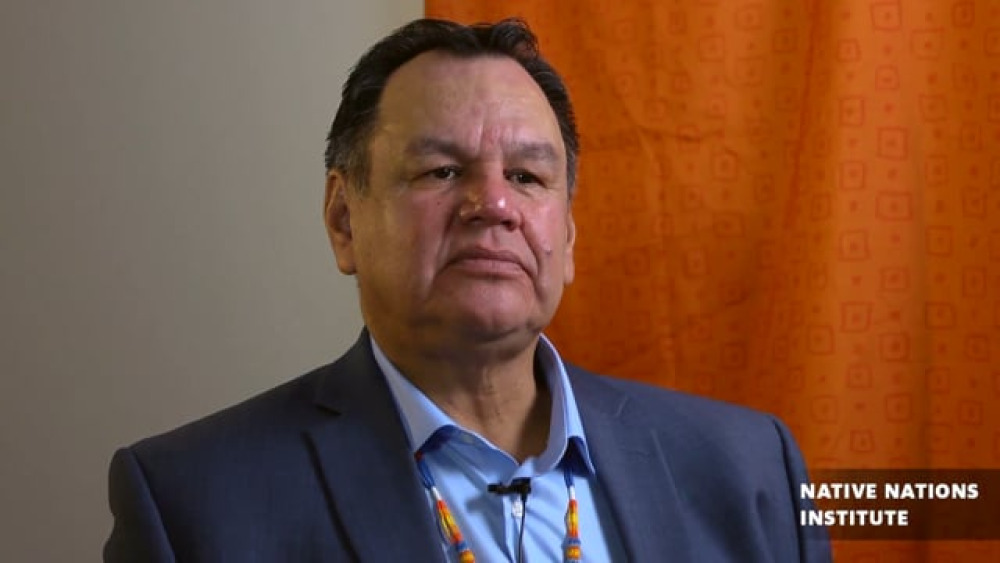
Kenneth Hall: Rising to the challenge of self-governance
Councilman Kenneth Hall was elected to the Mandan, Hidatsa, and Arikara Nation tribal business council in 2012 and represents the largest population in the north segment. Councilman Hall is Hidatsa, of the Knife Clan, and great-grandson of Chief Dragswolf, the last chief of the Hidatsa people. Hall…

Verna Bailey: Making Self-Governance Work for Standing Rock
Former councilwoman Verna Bailey of the Standing Rock Sioux Tribe representing the Long Soldier District reveals the ins and outs of working with changes in a tribal council government. Her experiences offer insight into the history of self-governance for Standing Rock Sioux Tribe.
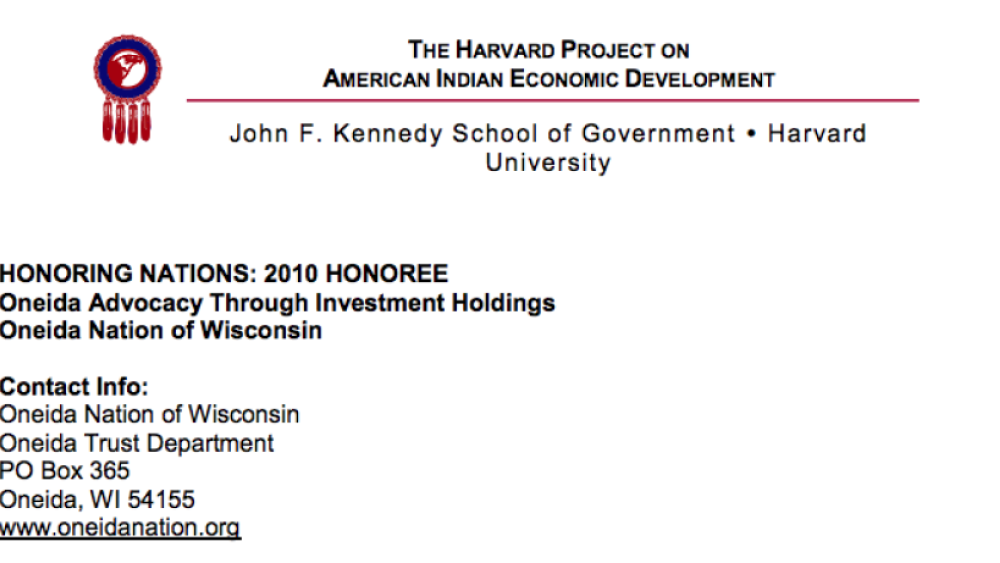
Oneida Advocacy Through Investment Holdings
Thirty years ago, most Native nations in the U.S. had few financial resources available for investment. With the passage of the Indian Self-Determination and Education Assistance Act (Public Law 93-638) in 1975, many tribes began to reclaim the governance of their nations – and with such assertions…
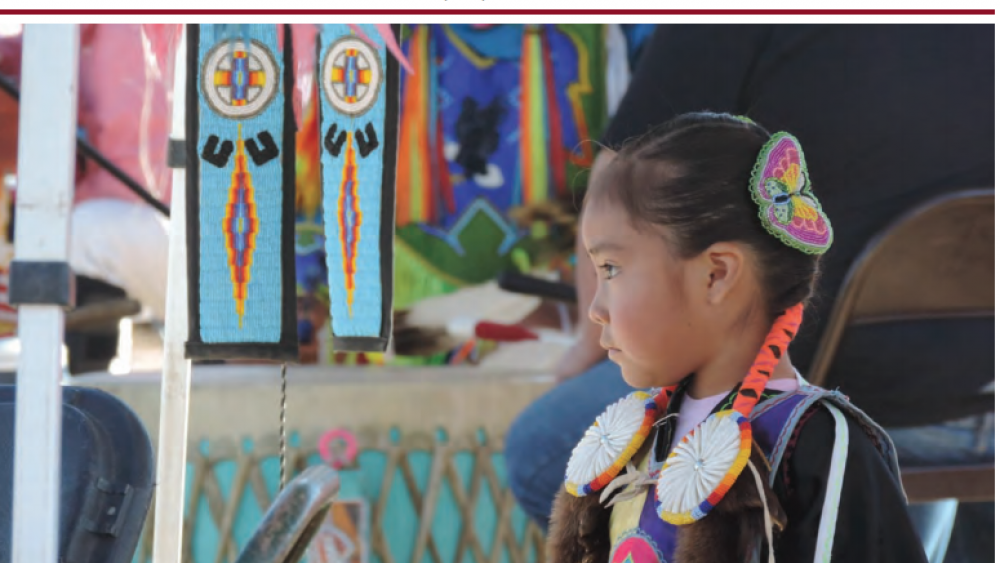
Tribal Child Welfare Codes as Sovereignty in Action. 2016 NICWA conference edition
With passage of the Indian Child Welfare Act of 1978 (ICWA), Congress formally recognized Native nations’ inherent authority to govern child welfare matters and provided support for tribal self-determination over child welfare. Because ICWA “assumes that a tribal code is the governance mechanism by…
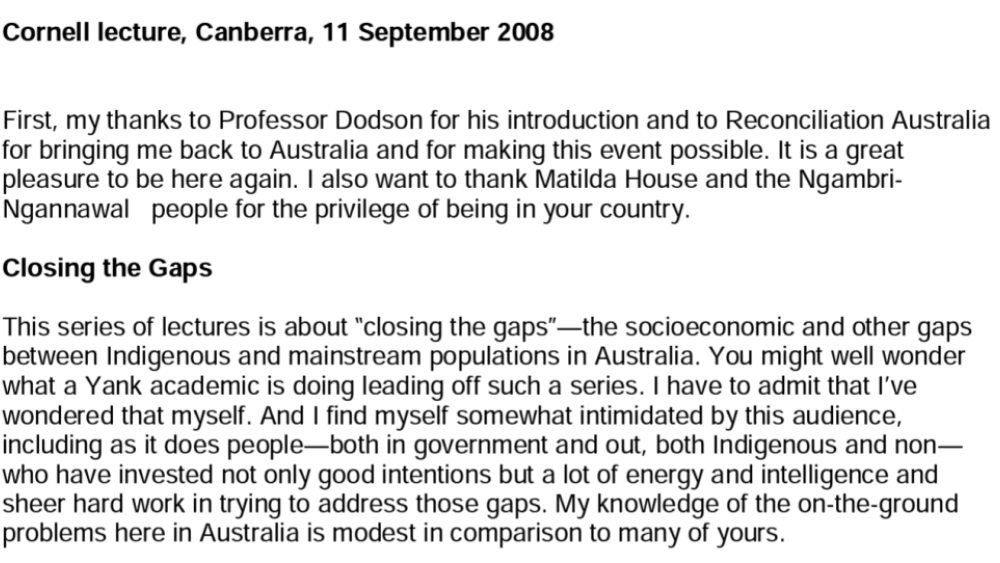
Closing the Gap: A North American Perspective
This series of lectures is about “closing the gaps”–the socioeconomic and other gaps between Indigenous and mainstream populations in Australia. You might well wonder what a Yank academic is doing leading off such a series. I have to admit that I’ve wondered that myself. And I find myself somewhat…
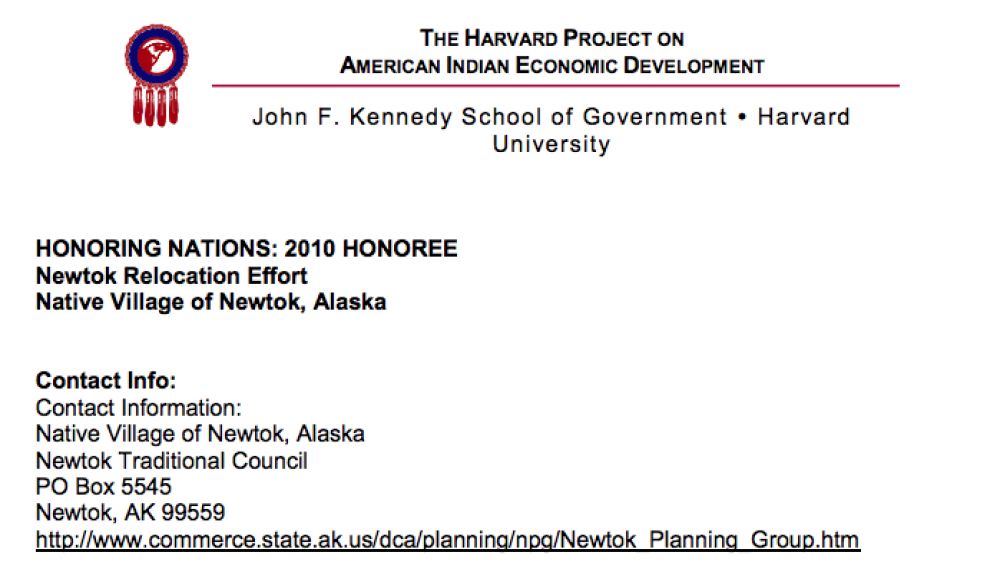
Newtok Relocation Effort
Scientists and politicians spend hours debating the facts of climate change, but in many places damaging changes to the local environment are already a reality. In the past decade, more and more human settlements have been threatened by catastrophic flooding, wildfires, or drought caused by…
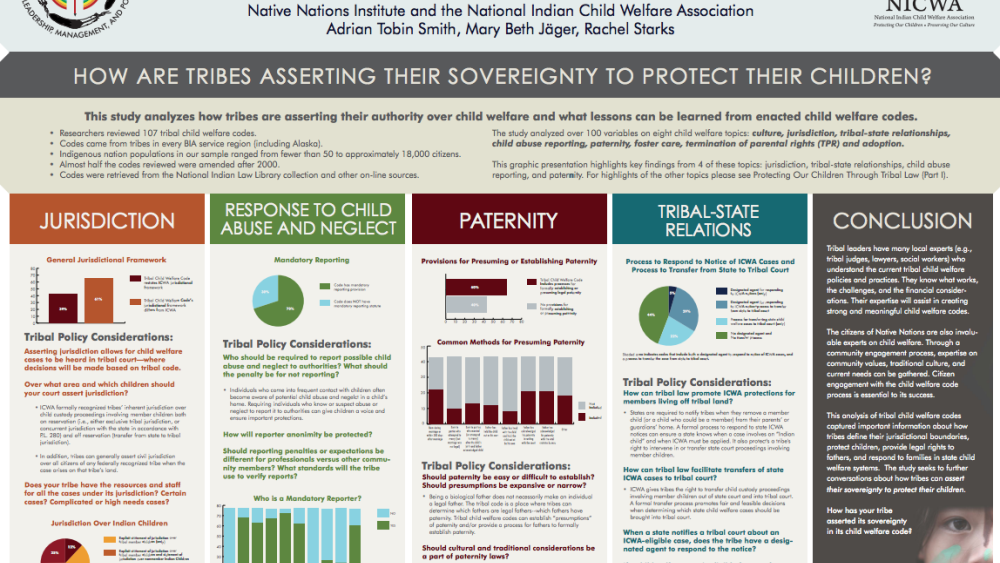
Protecting Our Children Through Tribal Law: Part II
This graphic presentation highlights key findings from 4 of these topics: jurisdiction, tribal-state relationships, child abuse reporting, and paternity. For highlights of the other topics please see Protecting Our Children Through Tribal Law (Part I).
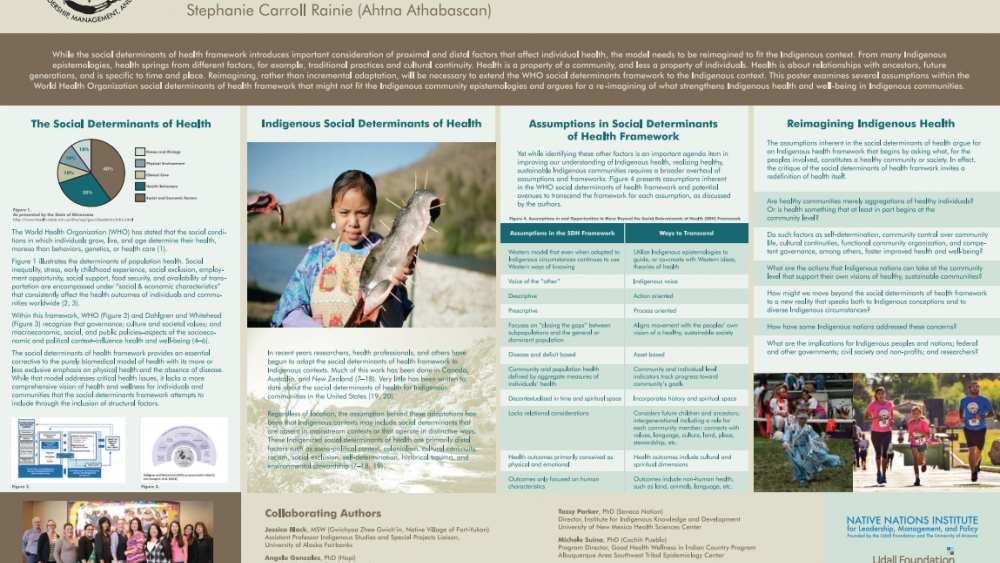
Reimagining Indigenous Health: Moving Beyond the Social Determinants of Health
Senior researcher Stephanie Carroll Rainie critiqued the application of social determinants of health models in Native communities and challenged readers to reconsider how they think about Indigenous health.
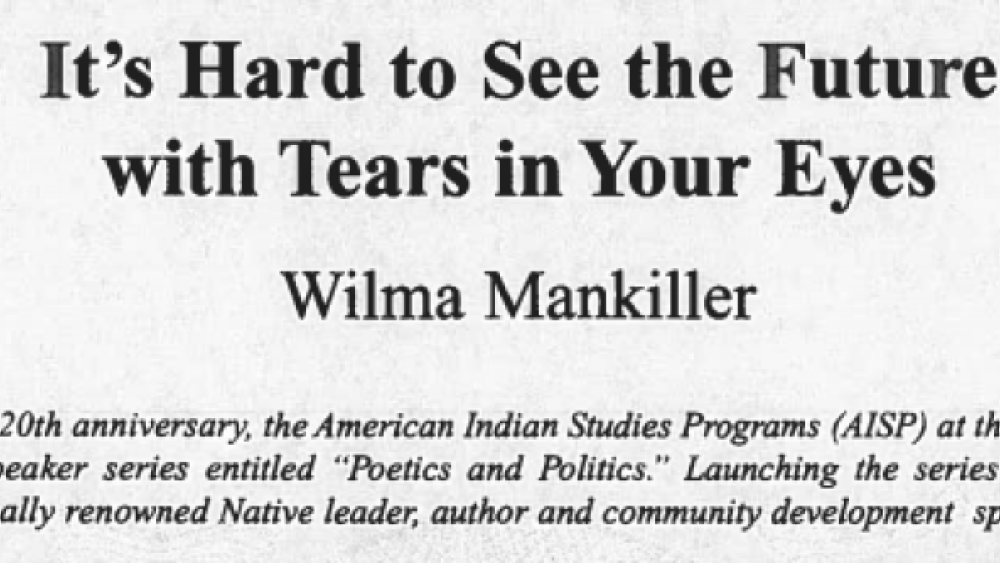
It's Hard to See the Future with Tears in Your Eyes
To commemorate its 20th anniversary, the American Indian Studies Programs (AISP) at the University of Arizona staged a speakers series entitled "Poetics and Politics." Launching the series was Wilma Mankiller (Cherokee), a nationally renowned Native leader, author, and community development…
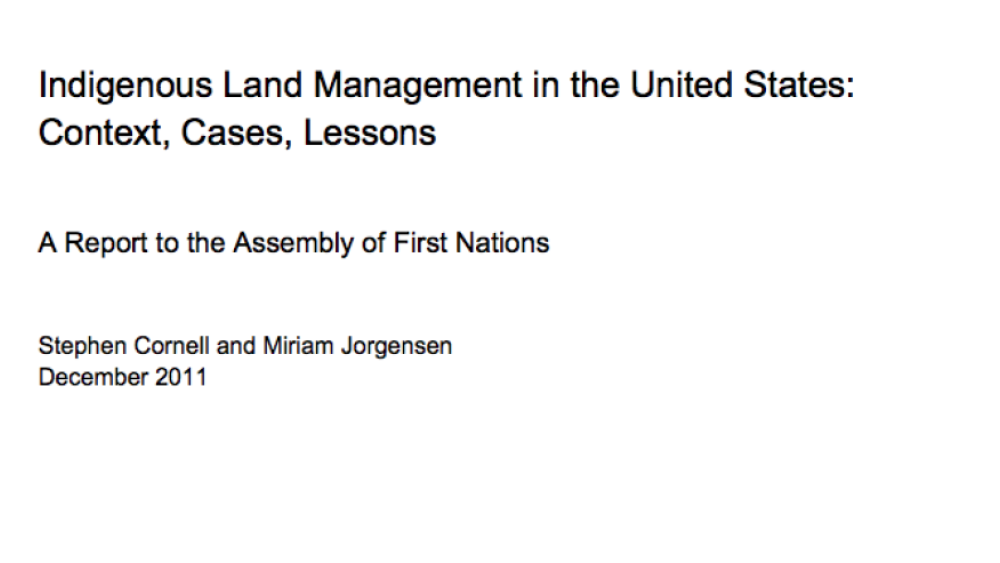
Indigenous Land Management in the United States: Context, Cases, Lessons
The Assembly of First Nations (AFN) is seeking ways to support First Nations’ economic development. Among its concerns are the status and management of First Nations’ lands. The Indian Act, bureaucratic processes, the capacities of First Nations themselves, and other factors currently limit the…
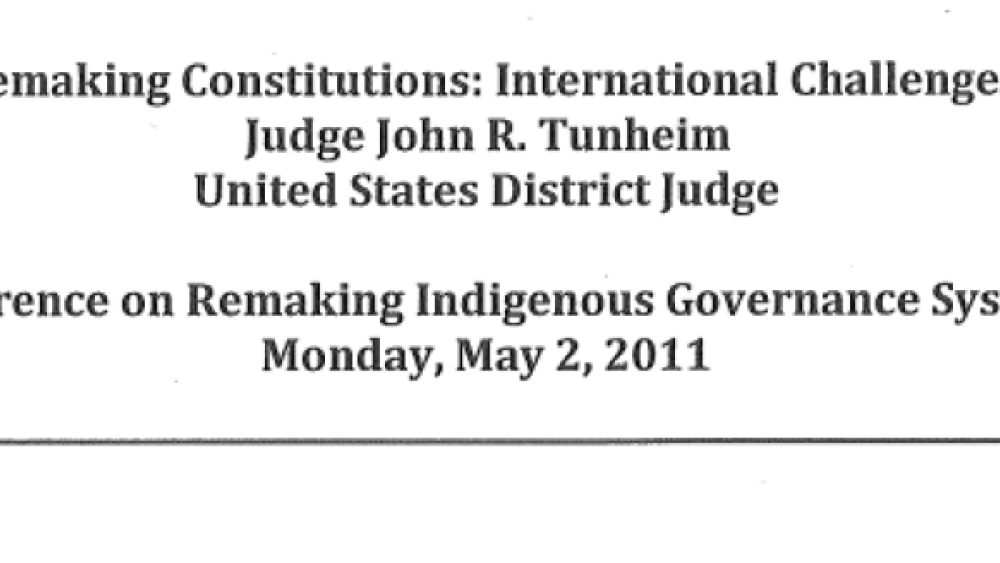
Remaking Constitutions: International Challenges
U.S. District Court Judge John R. Tunheim, whose work in Kosovo helped the United Nations re-establish and improve Kosovo's legal system and ultimately restructure its entire judiciary, discusses his observations as the principal outside advisor to the process that developed the Kosovo Constitution…
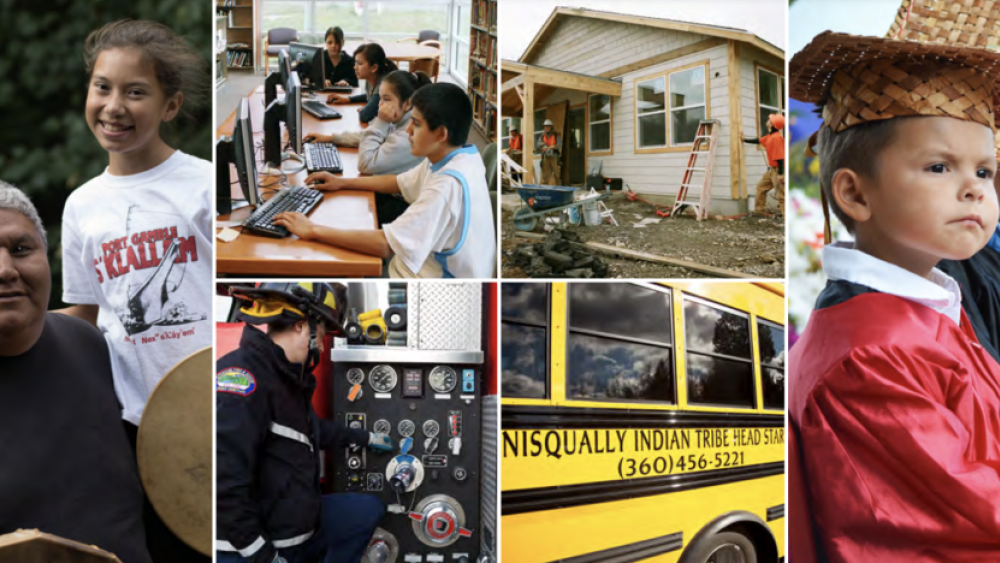
Why beggar thy Indian neighbor? The case for tribal primacy in taxation in Indian country
The law governing taxation in Indian country is a mess. The accretion of common law precedents and the general tendency of states to assert primacy over the taxation of non-Indians create absurd outcomes. This article makes the case three ways. The argument based on the law shows that…
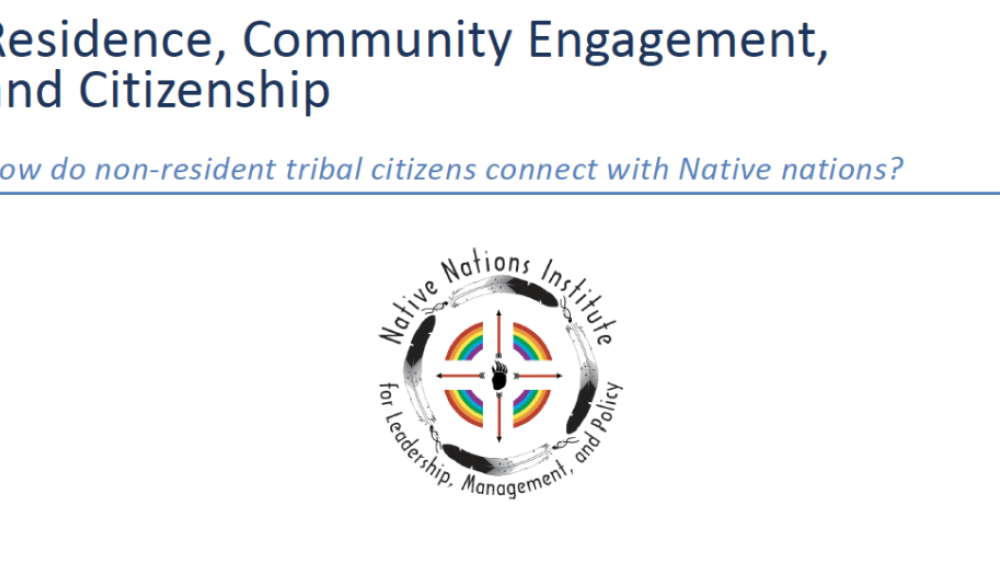
Residence, Community Engagement, and Citizenship: How do non-resident tribal citizens connect with Native nations?
The research draws from an online survey targeted primarily at younger tribal citizens living away from tribal lands; this project provides preliminary insight into 1) non-resident citizens' engagement with their tribes, and 2) the ways tribes might connect more effectively with non-resident…
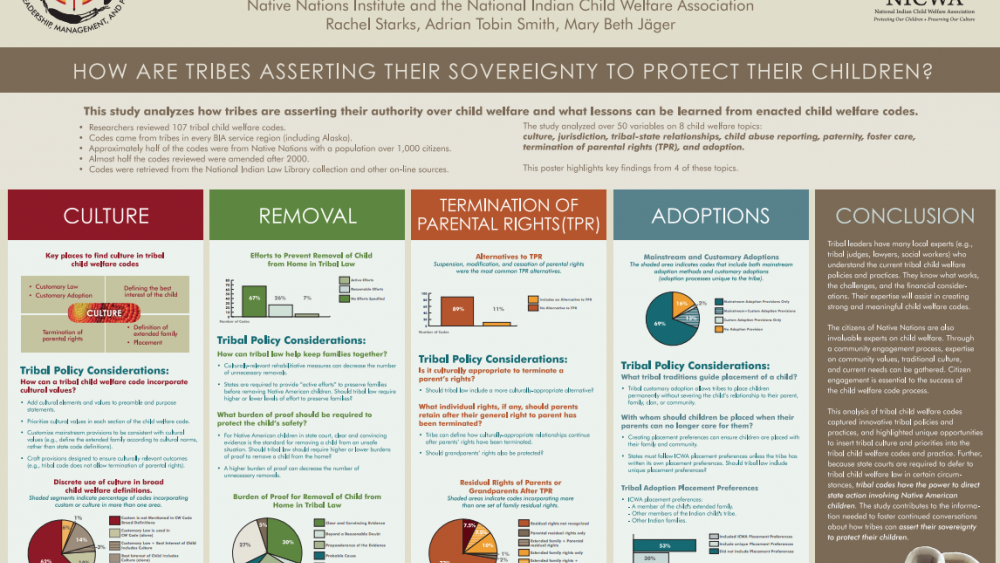
Protecting Our Children: A Review of 100+ Tribal Welfare Codes
NNI researchers Mary Beth Jäger (Citizen Potawatomi), Rachel Starks (Zuni/Navajo), and National Indian Child Welfare Association governmental affairs staff attorney, Adrian Smith shared the results of an ongoing study on culture, removal, termination of parental rights, and adoption in tribal child…
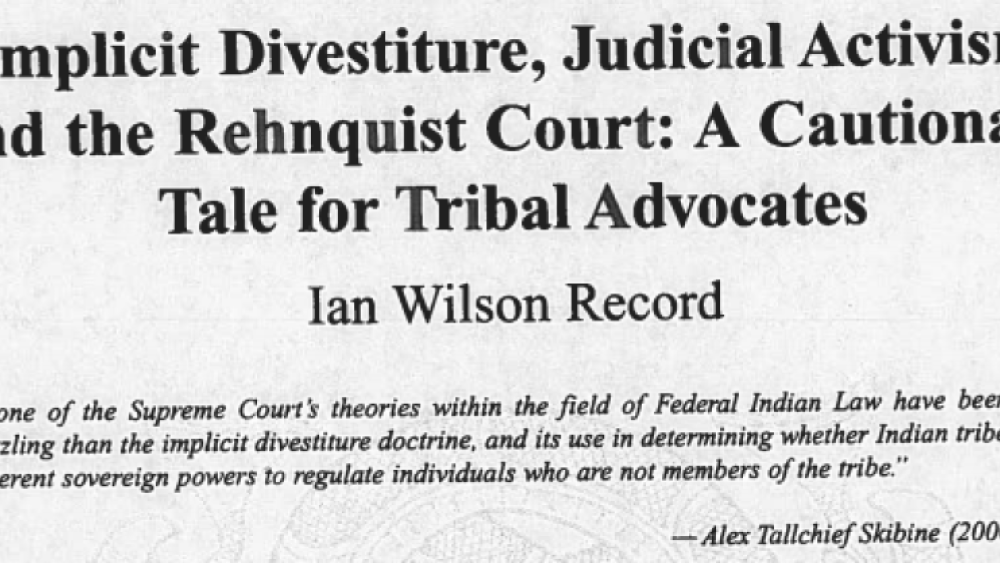
Implicit Divestiture, Judicial Activism and the Rehnquist Court: A Cautionary Tale for Tribal Advocates
Many tribal advocates have likened the legal corpus known as Federal Indian Law to a pendulum that swings back and forth under the forceful hand of the United States government and its political inclinations at any given moment. While this swinging pendulum has brought great uncertainity and…
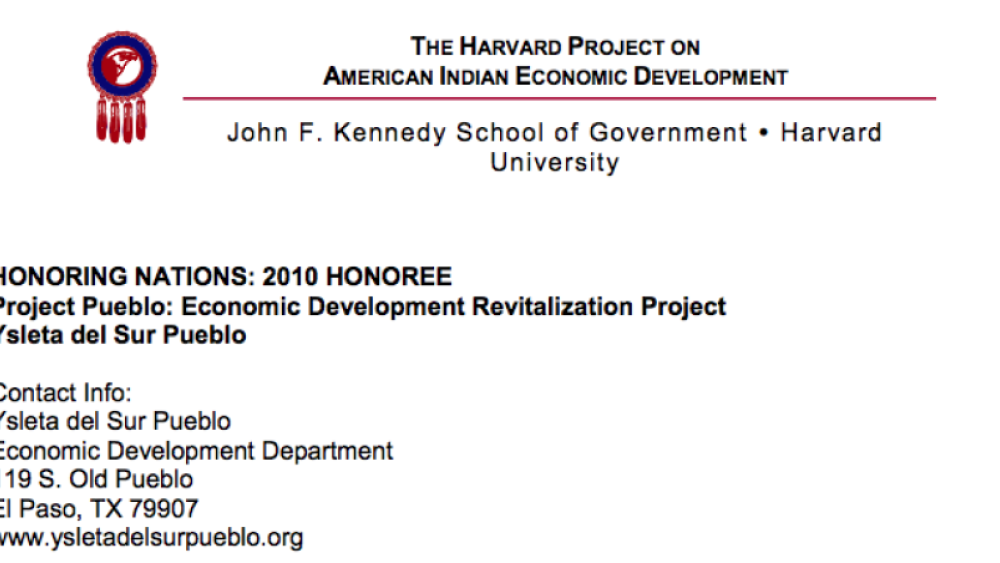
Project Pueblo: Economic Development Revitalization Project
A strong economy is one of the foundations of a healthy community. Native nations use business profits and tax revenues to invest in areas such as health, education, culture, and public safety programs to meet the needs of tribal citizens. At the Ysleta del Sur Pueblo, a sudden economic decline in…
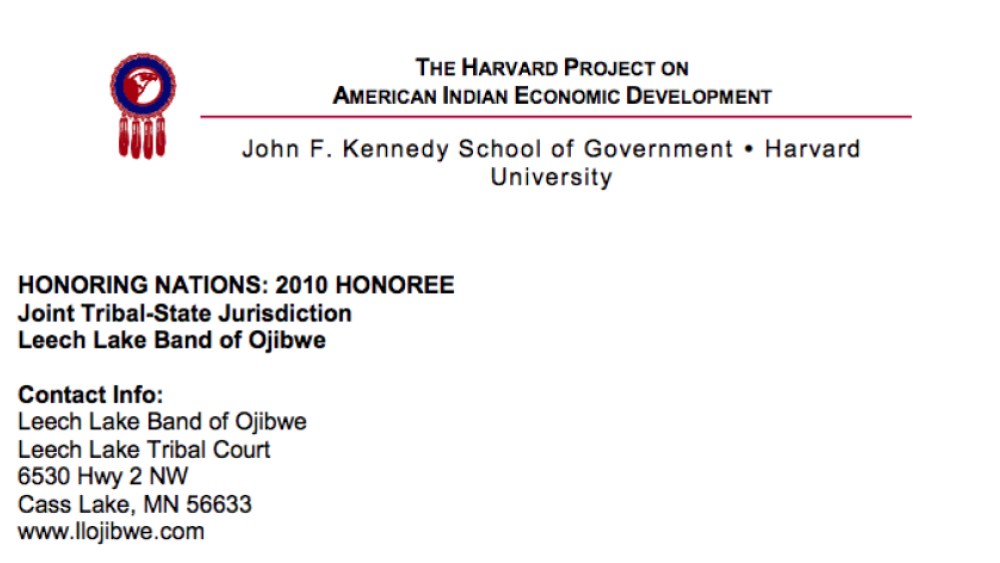
Leech Lake Joint Tribal-State Jurisdiction
Across Indian Country tribes are strengthening and better defining their governments in order to meet the unique needs of their communities. As Native nations work to expand their sovereign powers, tribal justice departments can play a critical role in achieving those goals. In the early 2000s, the…
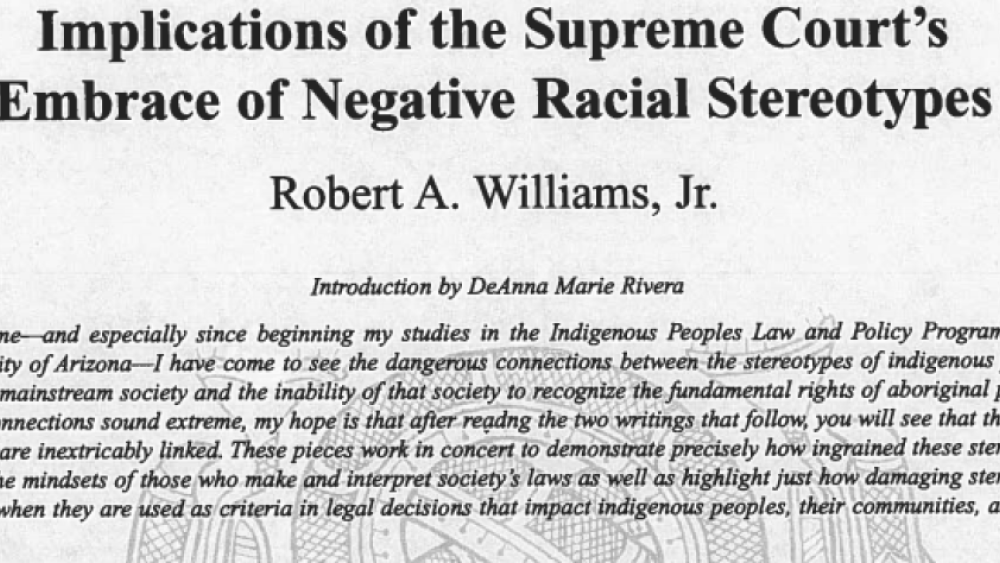
Implications of the Supreme Court's Embrace of Negative Stereotypes
The issues surrounding Native stereotypes should not be dismissed or diminished as merely "surface" problems. "Indian" stereotypes go to the core of the legal, political and economic struggles that Indigenous peoples confront in their work to preserve and strengthen their respective cultures and…
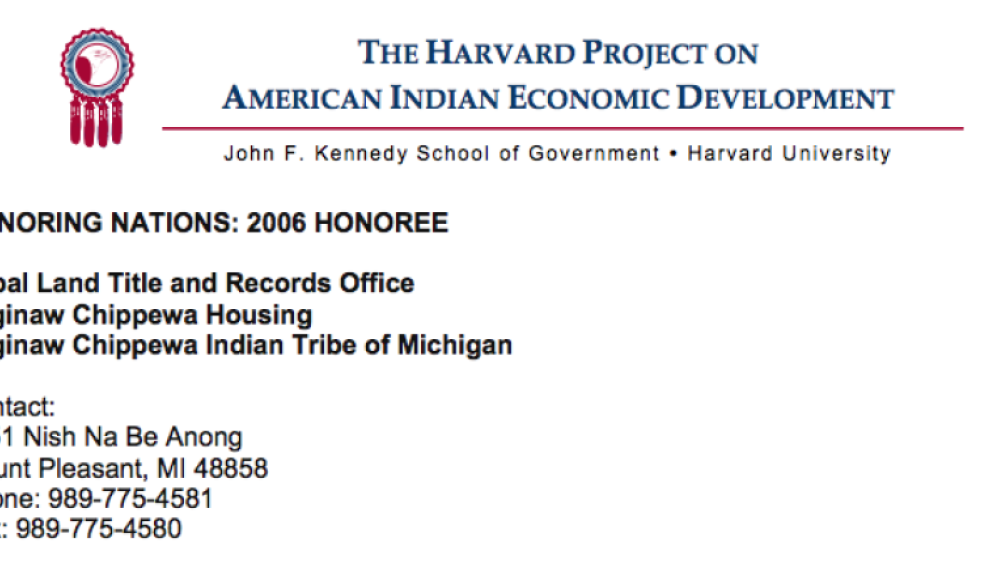
Saginaw Chippewa Tribal Land Title and Records Office
With the ultimate goal of seeing a time when Native people and nations once again own and manage the land within the boundaries of every reservation as well as those lands that are culturally important to them beyond reservations, the Tribal Land Title and Records Office keeps all records and…
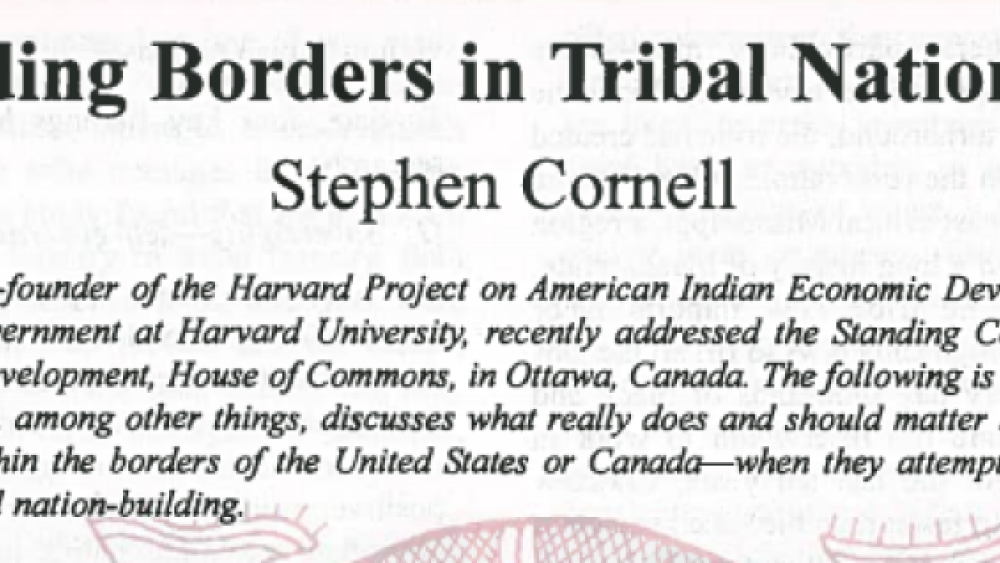
Transcending Borders in Tribal Nation-Building
Dr. Stephen Cornell addressed the Standing Committee on Aboriginal Affairs and Northern Development, House of Commons, in Ottawa, Canada. The following is the excerpted transcript from his address, which, among other things, discusses what really does and should matter to Indigenous peoples--…
Pagination
- First page
- …
- 5
- 6
- 7
- …
- Last page
